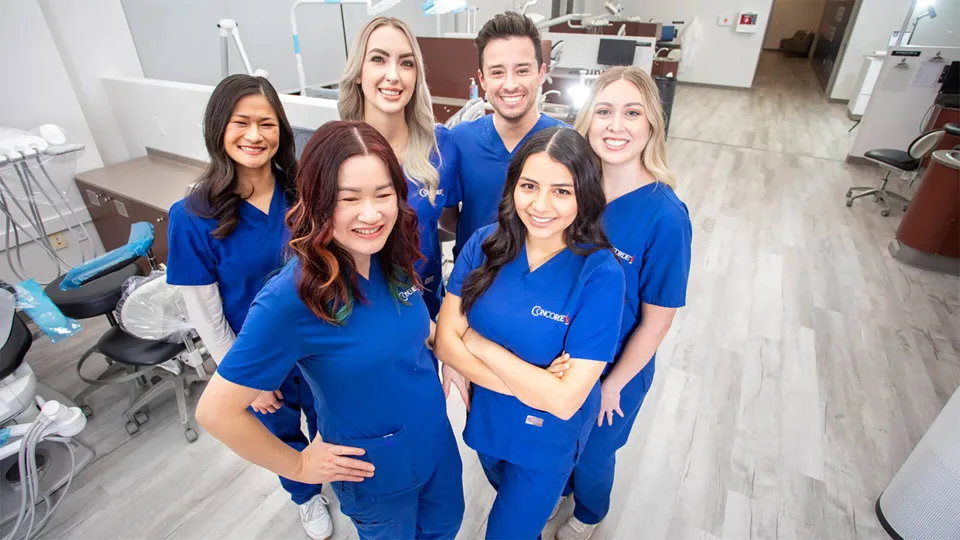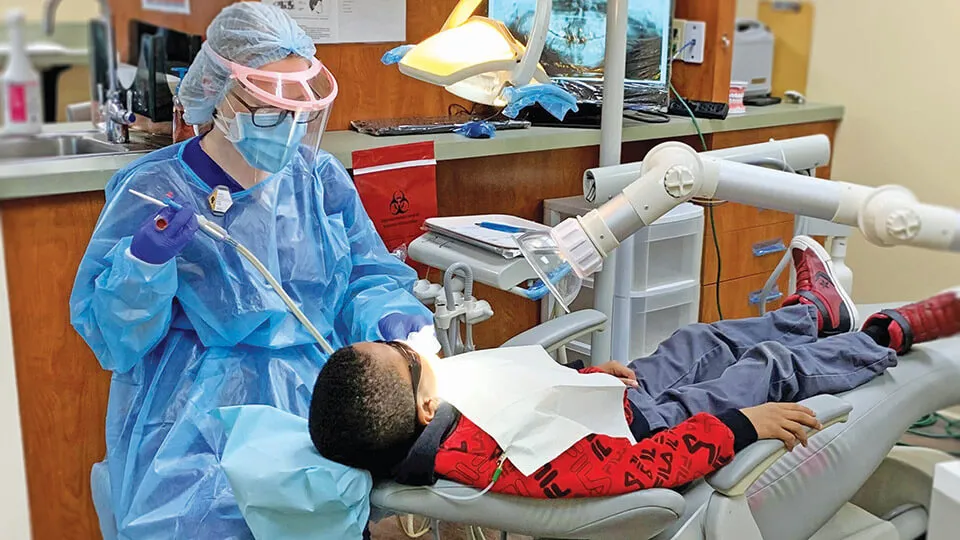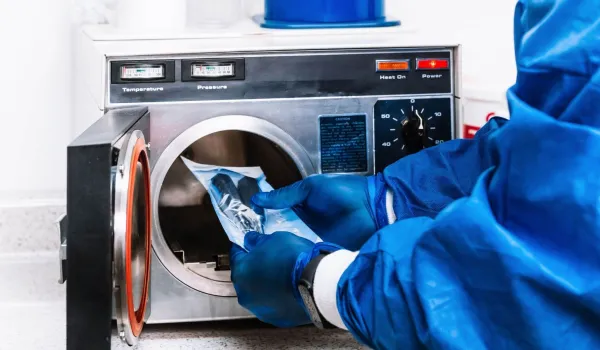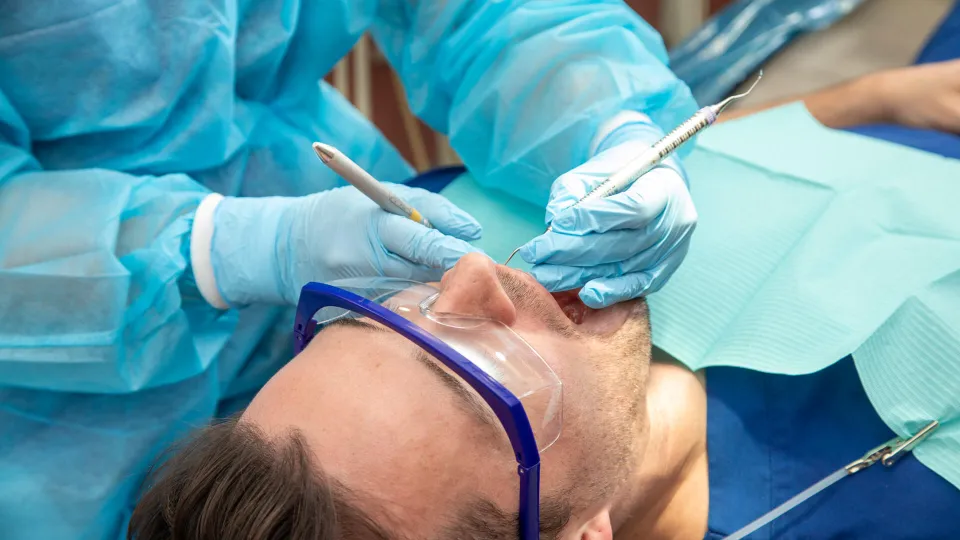
Dental hygienists play a critical role in oral health care. The qualities of a dental hygienist go beyond clinical competencies and technical know-how and include valuable personality traits and critical soft skills that directly impact the patient's experience and outcome. Understanding the key traits of a good dental hygienist will help you determine whether this is the right career path for you. If it is, you can use these traits as valuable focus points to improve your employability and help your resume stand out when you're ready to enter the profession.
Empathy and Compassion

A compassionate approach to dental care is essential to help alleviate patient anxiety while building trust and rapport. Dental hygienists encounter patients from diverse backgrounds who have a wide range of prior experiences. Many patients may have had a negative dental experience and need reassurance and support to feel confident about their next procedure.
Dental anxiety is a common problem. One study identified a dental phobia in 7.8% of participants and found that just 19.1% had no dental anxiety. This shows that most of the respondents experienced some degree of concern. Dental anxiety is typically higher in children than adults, so a pediatric dental hygienist should consider calming and reassuring patients a major part of the job.
Dental anxiety can lead to missed appointments or a complete avoidance of the dentist. Dental hygienists who prioritize empathy and compassion can help combat some of this resistance to dental care by providing a positive experience that will encourage patients to return.
Strong Communication Skills
Dental hygienists interact extensively with patients, dentists, and other team members, such as receptionists and fellow hygienists. They should excel at establishing rapport, evaluating the patient's oral health literacy, and summarizing information in a manner patients can understand.
Hygienists must listen carefully to the patient to understand and address their questions and concerns. The hygienist explains dental procedures, provides oral hygiene instructions, and effectively educates patients on proper oral care. Clear communication helps build patient trust and improve compliance with oral health recommendations.
Dental hygienists must also communicate clearly and accurately with dentists. They translate the patient's concerns into medical terminology to help direct the dentist to the right tooth, gum, or other problem area. Strong communication between the dentist and hygienist supports accurate diagnoses and optimal treatment plans.
Public speaking abilities can benefit their communication skills in the dental office. Pursuing opportunities for public speaking can improve their employability as a dental hygienist. They could consider participating in open mic poetry readings, attending public speaking meetup groups, or joining Toastmasters to strengthen their communication skills.
Attention to Detail
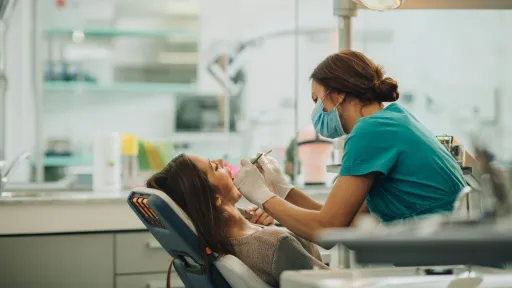
Meticulous attention to detail ensures proper compliance with dental standards. Dental hygienists carefully clean and examine all tooth surfaces. A close and attentive inspection will ensure prompt identification of potential oral health problems and high-quality patient care. For example, periodontitis symptoms include puffy gums and red or purple spots. This is the leading cause of tooth loss. Around 42% of adults aged 30 and over have periodontitis , so dental hygienists must be alert to potential signs of this condition.
Attention to detail is also essential when implementing sterilization and infection control procedures. The Centers for Disease Control and Prevention recommends that dental professionals always treat instruments as contaminated before the disinfection and sterilization process. Proper instrument handling includes labeling, heat sterilization, and packaging for storage. Overlooking any part of the sterilization procedure can expose patients to infection and dangerous complications.
Hygienists also ensure accurate record-keeping. Error-free patient records are vital to the dental office, guaranteeing optimal care while protecting the practice from complications associated with mistakes, such as inaccurate billing or potential lawsuits.
Manual Dexterity and Coordination
Manual dexterity is a person's ability to use their hands in a coordinated, skillful way. This includes grasping and manipulating objects with tiny, precise movements. Manual dexterity is essential to function effectively as a dental hygienist, as they must manipulate tiny tools, many of which are sharp, such as the sickle probe. From scraping plaque with a scaler to shaping composite resin with a spoon excavator, they must be able to make small, accurate movements with all the tools on their tray.
Coordination and manual dexterity have a direct impact on clinical performance and the quality of patient care. Dental procedures necessitate long periods of precision work at a very small scale. Effective hand-eye coordination and superior dexterity are critical to maintaining patient safety and producing quality results.
Practicing skills that involve hand-eye coordination and precise movements before dental school can help applicants prepare for training as a dental hygienist. Woodcarving, knitting, needlepoint, tying fishing knots, or playing a musical instrument are all activities that will enhance dexterity and coordination.
Professionalism and Ethical Conduct
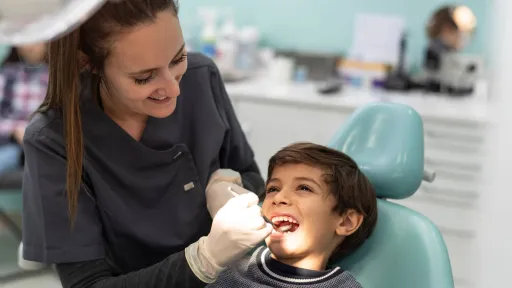
Maintaining a high standard of professionalism helps build patient confidence and contribute to a positive work environment. Dental team members must maintain patient confidentiality and adhere to strict ethical guidelines and regulations. The American Dental Hygienists Association has a strict code of ethics that mandates:
- Serving all clients without discrimination
- Maintaining confidential client relationships
- Communicating respectfully
- Promoting high standards and ethical behavior among all dental hygienists
- Advocating for client welfare
- Educating patients as needed to facilitate informed decision-making
This code also outlines the dental hygienist's responsibility to continually enhance their professional competencies, pursue continual learning, develop collaborative professional relationships, and strive for personal growth. Dental hygienists should assert their interests fairly and equitably, seek advice from others in ethical dilemmas, and maintain realistic expectations of themselves. Adhering to these guidelines and upholding the full code of ethics in a dedicated and professional manner can help dental hygienists excel in their careers.
Adaptability and Flexibility
Maintaining adaptability and flexibility allows dental hygienists to smoothly navigate the dynamic nature of the dental field. Each patient has unique needs and behaviors. The ability to adapt quickly allows hygienists to provide effective, personalized patient care. Unexpected discoveries and dental emergencies can occur at any time, and the proper degree of controlled flexibility will enable a skillful response that best serves the patient's needs.
Dental hygienists also need to maintain adaptability in the face of evolving dental research and developments. Technological advancements, such as artificial intelligence, augmented reality, robotics, and 3D printing, continually present new possibilities in dental health care. Adaptable professionals can stay at the forefront of these innovative developments.
Patience and Composure
Maintaining patience and composure helps create a calm environment, which is essential for patients who may be experiencing anxiety or discomfort. A dental office can, by nature, present challenges such as overbooking, unexpected dental emergencies, and potential delays. Dental hygienists must maintain their composure and work patiently with clients who are young, anxious, have special needs, or present other challenges.
Dental hygienists may also have to complete complex or time-consuming procedures. Rushing through the steps or being impatient with the process can compromise patient safety and diminish the level of care. Occupational fatigue is common among health care professionals, including dental hygienists. Actively managing stress through meditation, yoga, and exercise can help professionals combat burnout and maintain their patience and composure to provide quality care to their patients.
While the essential skills for dental hygienists may come more naturally to some than to others, these are all aspects they can improve with dedication and practice. If people are passionate about dental hygiene and want to make a difference in the lives of patients, this can be a rewarding career path.
Students may complete the Dental Hygiene Associate Degree Program at Concorde Career College in just 17 to 22 months depending on the campus location. This program can give them the opportunity to learn and practice the skills and knowledge they need for this high-demand job. According to the Bureau of Labor Statistics, job growth for dental hygienists is projected at 7% over the 2024 to 2034 which is more than double the national average of 3% for all occupations in the US.
Students can prepare for professional success by considering what makes a great dental hygienist and going beyond the scope of their educational program to hone these skills themselves. From enhancing dexterity through delicate crafts to supporting their mental health with a dedicated meditation practice, there are many things they can do to ensure success in this field.
"Associations between Dental Anxiety Levels, Self-Reported Oral Health, Previous Unpleasant Cental Experiences, and Behavioural Reactions in Dental Settings: An Adult E-Survey." National Library of Medicine. https://pmc.ncbi.nlm.nih.gov/articles/PMC11356593/
"Gum Disease Facts." CDC. https://www.cdc.gov/oral-health/data-research/facts-stats/fast-facts-gum-disease.html?CDC_AAref_Val=https://www.cdc.gov/oralhealth/fast-facts/gum-disease/index.html
"How to Become a Dental Hygienist: A Guide to Education and Licensure." Concorde. https://www.concorde.edu/blog/path-becoming-dental-hygienist-step-step-guide
"Bylaws & Code of Ethics." American Dental Hygienists' Association. https://www.adha.org/wp-content/uploads/2023/01/ADHA_Bylaws_Code_of_Ethics_FY22.pdf
"What Does a Dental Hygienist Do?" Concorde. https://www.concorde.edu/blog/what-does-dental-hygienist-do
"Why It's Important to Keep Dental Emergencies Away From the ER." Concorde. https://www.concorde.edu/blog/why-its-important-keep-dental-emergencies-away-er
"Dental Hygiene Associate Degree Program." Concorde. https://www.concorde.edu/dental-programs/dental-hygiene#curriculum
"Dental Hygienists," Bureau of Labor Statistics. https://www.bls.gov/ooh/healthcare/dental-hygienists.htm#tab-6
Take The Next Step Towards a Brighter Future
Interested in learning more about our Dental Hygiene program?
We have a Concorde representative ready to talk about what matters most to you. Get answers about start dates, curriculum, financial aid, scholarships and more!


